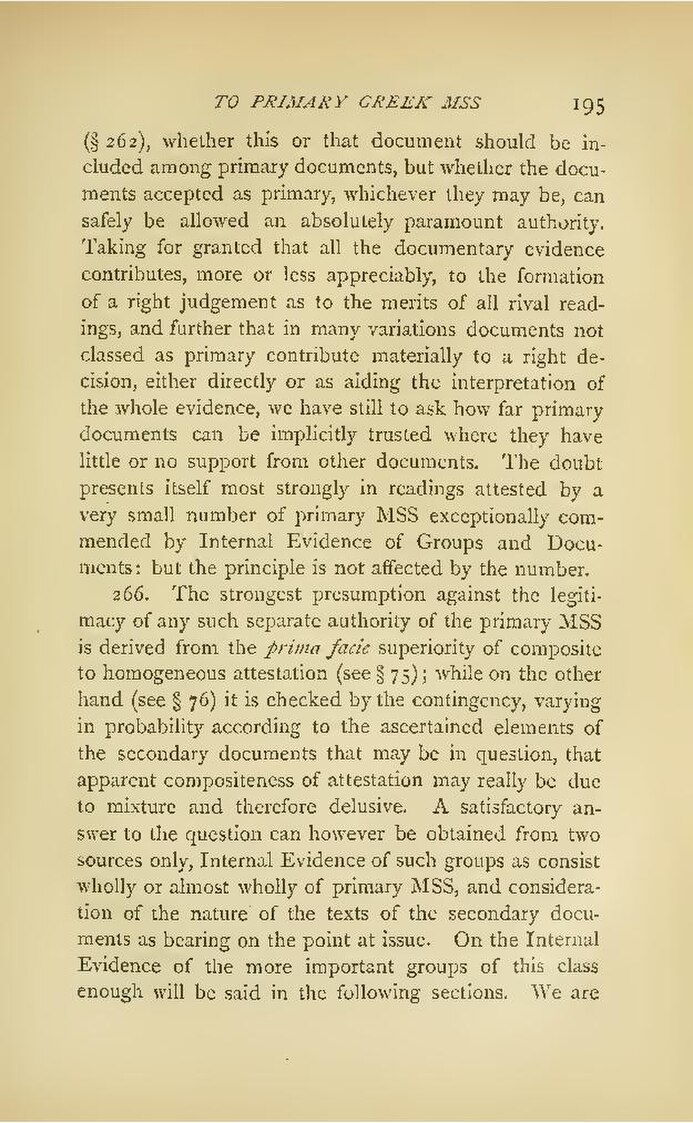(§ 262), whether this or that document should be included among primary documents, but whether the documents accepted as primary, whichever they may be, can safely be allowed an absolutely paramount authority. Taking for granted that all the documentary evidence contributes, more or less appreciably, to the formation of a right judgement as to the merits of all rival readings, and further that in many variations documents not classed as primary contribute materially to a right decision, either directly or as aiding the interpretation of the whole evidence, we have still to ask how far primary documents can be implicitly trusted where they have little or no support from other documents. The doubt presents itself most strongly in readings attested by a very small number of primary MSS exceptionally commended by Internal Evidence of Groups and Documents: but the principle is not affected by the number.
266. The strongest presumption against the legitimacy of any such separate authority of the primary MSS is derived from the prima facie superiority of composite to homogeneous attestation (see § 75); while on the other hand (see § 76) it is checked by the contingency, varying in probability according to the ascertained elements of the secondary documents that may be in question, that apparent compositeness of attestation may really be due to mixture and therefore delusive. A satisfactory answer to the question can however be obtained from two sources only, Internal Evidence of such groups as consist wholly or almost wholly of primary MSS, and consideration of the nature of the texts of the secondary documents as bearing on the point at issue. On the Internal Evidence of the more important groups of this class enough will be said in the following sections. We are
